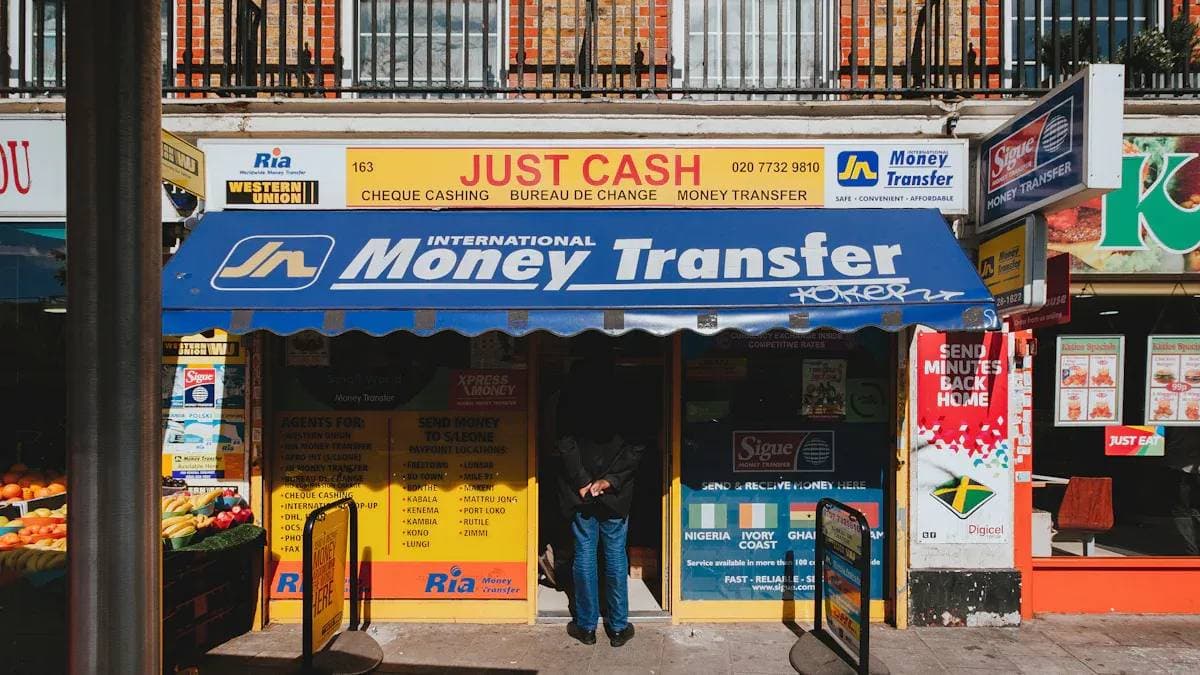- EasyCard
- Trade
- Help
- Announcement
- Academy
- SWIFT Code
- Iban Number
- Referral
- Customer Service
- Blog
- Creator
Why are more and more people opening overseas bank accounts? Learn these, and you can too!
With the increasing demand for cross-border transfers and global investment, more and more people are considering opening bank accounts overseas. Whether it is for convenient payment collection, managing overseas assets, or dealing with financial issues in studying abroad, having an overseas account can make it easier for you to handle cross-border transfers, avoid high remittance fees and foreign exchange fluctuations. If you also have such a need or are considering opening an overseas bank account, you can learn more about this article.

Determine the reason for opening an overseas bank account
When deciding whether to open an overseas bank account, the first thing to consider is your actual needs. For many people, cross-border transfer and receiving payments are the most direct motivations. If you often need to receive Global Payments or make global transfers, having an overseas bank account can greatly simplify this process, save transfer fees, and avoid high transaction fees caused by using other Payment Instruments.
In addition, opening an overseas account is also a key step in participating in overseas investment. If you plan to invest in international markets, such as stocks, funds, etc., an overseas bank account can make it easier for you to manage cross-border assets and conduct transactions. It provides you with a more flexible way to allocate funds and helps you avoid the risks brought by currency fluctuations.
For those who plan to live overseas for a long time, having a local bank account is also crucial. Whether it’s paying tuition, rent, or daily expenses, an overseas bank account can make it more convenient and cost-effective for you to handle these matters.
Overall, opening an offshore bank account allows you to manage your funds more freely globally, enjoy the convenience of cross-border transfers, and provide more possibilities for future investment and financial planning.
Choose the right offshore bank
Choosing which bank to open an account with is a key step in determining the smoothness of your cross-border financial management. Different banks have significant differences in services, fees, and operability, so it is crucial to choose the most suitable bank according to your own needs.
First, you need to consider the global service scope of the bank. If you often need to make international transfers or cross-border transfers, it will be more convenient to choose a bank with a wide international network. For example, global banks like HSBC and Citigroup usually have branches in multiple countries and regions, which can help you easily transfer money between different countries and handle various cross-border transactions.
In addition to global banks, some banks that focus on international clients, such as Switzerland Bank or Bank of China and Standard Chartered in Hong Kong, also provide very professional services, especially suitable for high net worth clients or people with special financial needs. These banks usually provide customized investment and wealth management plans for you, allowing you to manage your assets more efficiently.
When choosing a bank, other factors need to be considered, such as whether the bank offers multi-currency accounts, cross-border transfer fees, annual fees or minimum deposit requirements for the account. These will all affect the convenience and cost of using your account.
In short, when choosing a bank, you should decide on the type and service content of the bank based on your own needs, whether it is global payment needs, cross-border investment, or simple overseas account management, to ensure that it can meet your financial planning and life needs.
Steps and requirements for opening an account
Once the bank and account type are determined, the next step is the actual account opening process. Different banks may have differences in operation, but generally, the account opening process and required materials are quite similar. Understanding these steps and requirements can help you complete the account opening process more smoothly.
First, you need to prepare some basic materials. The most basic requirement is a valid identification document, and generally speaking, a passport is the most common choice. If you have a residential address overseas, you usually need to provide proof of address, such as recent utility bills, rental contracts, etc. In addition, some banks may also require you to provide financial background information, such as income sources, bank certificates of deposit, or tax records, especially for applications for high net worth clients or investment accounts.
Next is the formal application process. Nowadays, many banks support online account opening. You can submit the application directly through the bank’s website or mobile app, upload the required materials, and fill out the relevant forms. Online application is usually faster and more convenient to check the application progress at any time. It should be noted that some banks may require more detailed information and may even conduct identity verification through video calls and other forms.
If you choose to open an account offline, you may need to go to the designated bank branch, submit relevant documents, and complete the account application. Although offline account opening takes longer, it usually provides more direct consulting services to help you better understand account functions and bank services.
After submitting all the materials, the bank will review your identity and information. This process may take several days to several weeks, depending on the bank’s processing speed and the completeness of the information you provide. If everything goes smoothly, you will receive the bank’s account info and be able to start using your account for transactions.
During the account opening process, there is a very important step called KYC certification. This is the Anti Money Laundering and compliance requirement followed by international banks. Usually, you need to fill out some questionnaires about personal background, income sources, investment purposes, etc. The bank will further confirm your identity through this information and ensure that your account complies with relevant laws and regulations.
More convenient global multi-asset trading wallet - BiyaPay
For those who plan to invest and manage their wealth after opening an overseas bank account, using a multi-asset trading wallet like BiyaPay can make your asset management more convenient and efficient.
First of all, BiyaPay currently supports real-time exchange rate inquiry and exchange of more than 30 legal currencies and more than 200 digital currencies, effectively breaking down the barriers between legal currencies and digital currencies. Through BiyaPay, you can not only make local remittances in most countries and regions around the world, but also have low handling fees, fast arrival, and most importantly, no limit on the amount. This means that whether it is cross-border transfer of personal assets or daily fund flow, BiyaPay can provide a flexible and efficient solution. Moreover, BiyaPay supports same-day remittance and same-day arrival, which can bring great convenience to your fund management.
In addition, BiyaPay also provides a variety of investment services, covering fields such as US stocks, Hong Kong stocks, options, and digital currencies. If you already have an overseas bank account, you can directly bind your BiyaPay account for investment. It can not only serve as a tool for depositing and withdrawing funds, allowing you to easily transfer funds to other securities firms for investment, but also directly perform Asset Allocation through BiyaPay, helping you achieve cross-market and cross-asset class investment management.
Overall, opening an overseas bank account provides greater flexibility and convenience for cross-border transfer and investment management. With a multi-asset trading wallet like BiyaPay, you can manage your funds more efficiently and enjoy global investment opportunities. From cross-border remittances to US stocks, Hong Kong stocks, and even digital currency investments, BiyaPay makes all operations simple and convenient, providing smoother services for both fund transfer and asset allocation, escorting your global financial journey.
*This article is provided for general information purposes and does not constitute legal, tax or other professional advice from BiyaPay or its subsidiaries and its affiliates, and it is not intended as a substitute for obtaining advice from a financial advisor or any other professional.
We make no representations, warranties or warranties, express or implied, as to the accuracy, completeness or timeliness of the contents of this publication.




Contact Us
Company and Team
BiyaPay Products
Customer Services
is a broker-dealer registered with the U.S. Securities and Exchange Commission (SEC) (No.: 802-127417), member of the Financial Industry Regulatory Authority (FINRA) (CRD: 325027), member of the Securities Investor Protection Corporation (SIPC), and regulated by FINRA and SEC.
registered with the US Financial Crimes Enforcement Network (FinCEN), as a Money Services Business (MSB), registration number: 31000218637349, and regulated by FinCEN.
registered as Financial Service Provider (FSP number: FSP1007221) in New Zealand, and is a member of the Financial Dispute Resolution Scheme, a New Zealand independent dispute resolution service provider.




















